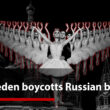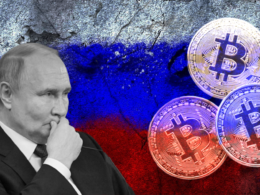An intense redistribution and displacement of weaker players is taking place in the global oil and gas market, making it difficult for Russia to maintain its market share. Its raw materials are less competitive than those from Saudi Arabia, Europe, or the United States. As a result, Russia may face a full-scale economic collapse, the main political consequence of which would be the destruction of small businesses, an increase in unemployment, and a decline in the standard of living for most of the Russian population. Oil prices may depend on actions taken by the United States, particularly on Trump’s stance and relations with the Kremlin.
It is worth recalling that during Trump’s previous presidency, he attempted to find a “middle ground” between benefiting from low prices and protecting the domestic oil industry. At that time, the government allocated around $4 trillion to stabilize the country’s economic situation, including support for companies extracting shale oil. Simultaneously, Trump called for an increase in the strategic petroleum reserve, taking advantage of low prices. Currently, the situation appears somewhat different, and Trump’s political decisions may have a security aspect, aimed at maintaining influence in Europe and stabilizing the situation in the Persian Gulf regarding control over oil fields and combating proxy forces attempting to control them and profit for conducting terrorist activities.
Despite geopolitical changes, Russia continues to play a rule-free game, utilizing a shadow fleet to sustain its economy. An analysis of the activities of new Turkish logistics operators indicates that by the third quarter of 2024, they managed to deliver a total of 26.7 million barrels of Russian oil to buyers. Transportation began at the start of the year when operators such as Alpha Ship Management Ltd-Mai, Crestwave Maritime Ltd., and Onn Denizcilik Ve Danismanlik delivered their first shipments. In addition to the Black Sea, the history of voyages following the imposition of sanctions encompasses all other Russian export regions – the Baltic, Far East, and Arctic. For instance, the Suezmax vessel Mission, previously managed by the Irish company Dylan Maritime 5 DAC, delivered a shipment of Russian oil from Murmansk to Myanmar in early January.
A notable example involves vessels from three new companies – Tokyo Gemi Isletmeciligi AS, Sand Gemi Isletmeciligi AS, and Cape Gemi Isletmeciligi AS (which share the same legal address in Istanbul). Eight of their oil tankers were managed by Beks Tanker Isletmeciligi AS, while one was managed by Beks Gemi Isletmeciligi ve Tic. Both companies are among the aforementioned Turkish ship managers that rank among the top 30 in the world by the volume of Russian cargo transportation in 2023.
It is known that Russia purchases old tankers from shipowners to make its trade more transparent. The European Union has introduced a rule requiring the notification of any tanker sales to a third country. Additionally, their owners frequently change the names of the ships and their flags to conceal their ownership. In response, EU member states along whose coasts these vessels operate have intensified controls over the movements of foreign-flagged vessels crossing their customs borders.








